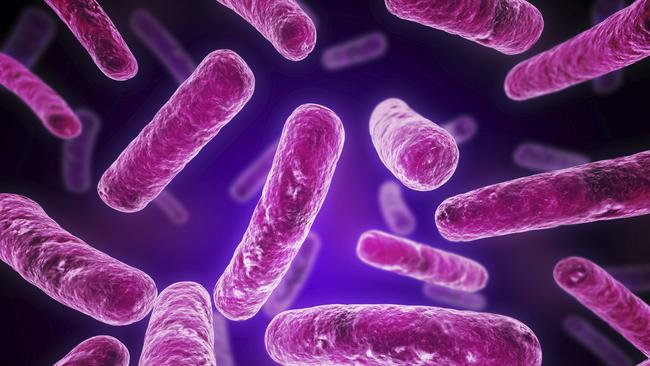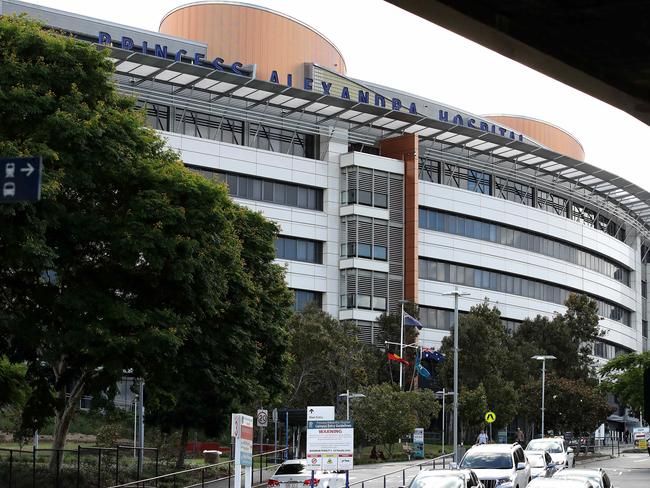Princess Alexandra Hospital: Cancer patients test positive for deadly Legionella bacteria
An investigation is underway at one of Queensland’s largest hospitals to determine the source of a deadly bacteria detected in two patients.

QLD News
Don't miss out on the headlines from QLD News. Followed categories will be added to My News.
Two cancer patients at one of Brisbane’s largest hospitals have tested positive for the deadly Legionella bacteria, with investigations underway to determine the mystery source.
Princess Alexandra Hospital executive director Jeremy Wellwood confirmed two patients returned a positive Legionella result on February 20.
Dr Wellwood said one case is believed to have been acquired in the community, but the source of the second case remained a mystery.
Legionella is not spread from person to person.
Both patients are being cared for in the oncology ward, with the hospital now undertaking additional water testing and water flushing in the specific area.
It’s understood routine quarterly testing undertaken at Princess Alexandra Hospital in December logged no positive indications for Legionella.
“The hospital is reviewing the matter in accordance with the Metro South Health Water Management Plan and includes a water testing program and a risk mitigation program,” Dr Wellwood said.

Infectious disease expert Paul Griffin said there are two main types of legionella bacteria, with the more commonly known legionella pneumophila found in air-conditioning cooling towers and water mains.
The other type, Legionella longbeachae, is typically found in soil or potting mix.
“The thing about Legionella that people don’t appreciate is that it’s all around us, it’s in a lot of water sources and in obscure things… like the windscreen water in cars can contain Legionella,” Dr Griffin said.
But infections are rare, with those with underlying conditions the most susceptible.
He said Legionella was a “very hard organism to control”, as it could survive in unexpected locations like the main water supply and that hospitals went to “great lengths” to control and monitor the bacteria.
“When we do see issues in hospitals it is usually due to a multitude of factors, including engineering issues, and plumbing. It can also be associated to a degree with things like temperature,” Dr Griffin said.

The most notable example of a Legionella outbreak in a Queensland hospital was at the Wesley Hospital in 2013.
The 2013 outbreak led the death of a cancer patient while a second patient ended up in intensive care after contracting Legionnaires disease.
This was the first ever recorded hospital outbreak and The Wesley was forced to run at reduced capacity for a month. The response to the outbreak cost millions of dollars.
Following the superbug crisis in Brisbane the State Government introduced mandatory periodic water testing at all private and public health facilities.
Queensland Health data shows legionella cases in the community in 2024 have been between nearly two and three times higher so far this year than in 2023 based on the bacteria type.
There have been 17 cases of people infected with legionella longbeachae this year, while eight have contracted legionella pneumophila.



